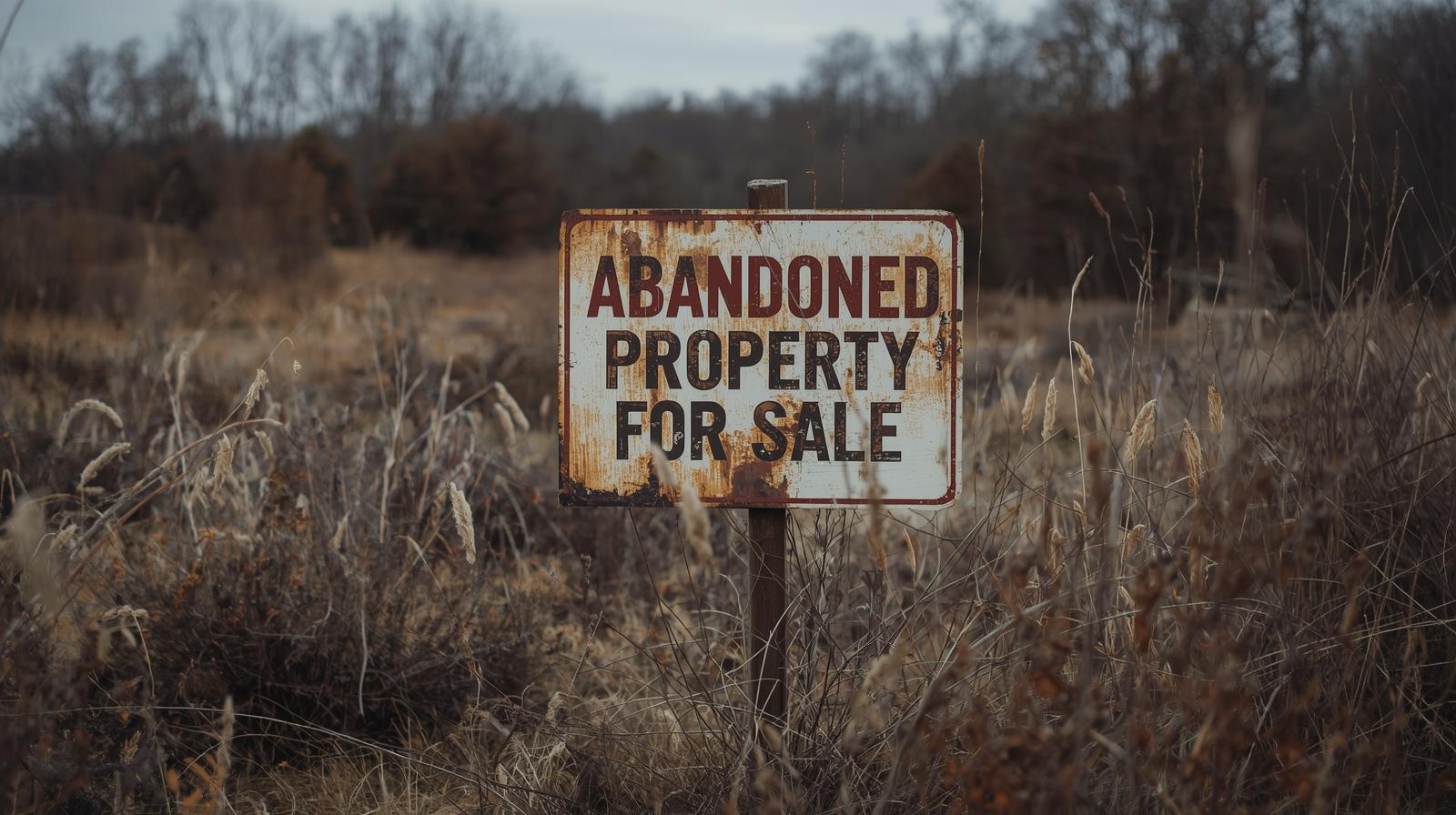
According to the Office for National Statistics, the median price of a house in the UK is £292,000. Sound like a rip-off? It’s definitely expensive and only rising, so you’d be surprised how popular the idea of buying and renovating an abandoned house for a fraction of the cost is
But before you start getting too excited, we’ve put together this article to explore some of the major doubts and issues you could possibly run into. Namely, can you actually buy a vacant place? How do you trace the owner, and what other kind of red tape is involved?
We’ll address it all here:
Short answer, yes – if you can:
Empty doesn’t just mean it’s up for grabs; it just means nobody’s living there right now. Someone could still technically own it. Government figures show 264,884 long-term vacant dwellings in England as of October 2024, which is roughly 1% of the housing stock.
A slice of that pool enters the market each year through auction or private treaty, but the vast majority of these are stuck in limbo because ownership is unclear or the structure fails safety tests.
Estate agents use terms like “abandoned” and “vacant” pretty loosely, but the legal test mainly looks at occupancy:
Vacant: No one lives there, but some services (water, etc) may still run.
Long-Term Vacant: It’s been empty for six months or more.
Derelict Properties: unsafe, often without utilities or a roof.
Abandoned House: Unoccupied or simply neglected by the legal owner.
Councils track long-term vacant stock because it drags on neighbourhood value and council-tax revenue. So, fortunately, that means you can ask a local council for its empty homes officer – many publish registers or will share leads if you genuinely show intent to regenerate them, which is exciting for you!
Keep your eyes peeled during weekend walks or cycle-throughs. You’ll also want to note down any addresses with overgrown gardens or boarded windows. Even post that’s been piling up. Don’t get creepy with it or trespass, but use a bit of common sense. Then:
Search Auction Catalogues: Regional auction rooms list vacant or derelict lots every six weeks.
Check the HM Land Registry Website: A £3 title search will show you the registered owner or flag “no information,” which could hint that the title may be unregistered.
Talk to Estate Agents Who Specialise in Fixer-Uppers: They often have some rough idea before a listing goes live.
Contact Local Authorities: Many run Empty Property Grants or will introduce you to owners keen to sell.
Drive Industrial Estates: Disused commercial property – especially workshops – can be converted to live-work units if the zoning allows that.
Ownership decides everything here. If the title is registered, the Land Registry file names the current owner and their correspondence address. But an unregistered title means you’ll need a solicitor to build a deed trail through paper archives.
So that’s a lot of legwork on your end. And check the location too – if a charity owns the title, your solicitor now needs to get trustee consent.
When the owner is a company dissolved years ago, the property may have “escheated” to the Crown via the Bona Vacantia division. Heavy jargon there, we know, so you can see more details on the GOV website.
You can apply to purchase from the Crown Estate, but that process requires special permission and a lot of money.
Adverse possession (basically tabloid shorthand for “squatter’s rights”) lets someone who occupies land without the owner’s consent apply to be registered as proprietor after a minimum term: ten years for registered land, twelve for unregistered.
You must prove factual possession and an intention to possess, as well as proof that the true owner didn’t consent. Most applications fail once notices alert the real owner. You want to be counting on a purchase here, not squatting, if you want bank finance.
Buying doesn’t require any licence, but renovation often triggers planning permission or building-control approval. If the site sits in a conservation area or holds listed status, you’ll need special permission and materials that match historic detail, which could add more cost.
For building land you intend to redevelop, we’d suggest that you submit pre-application sketches to see what the council thinks about it before paying for full plans.
Prices vary by region and whether utilities are intact. Auction data shows that derelict two-bed terraces in the North-East can close at around £40,000, but a shell in outer London can top £300,000.
Whatever you pay at an auction, we strongly suggest you budget at least 20% for unexpected structural fixes – roof joists, asbestos, etc.
And remember that location is still the most important thing. Rural cottages can look cheap, but utilities may sit miles away, which can erode any savings you make on the initial purchase price.
As you might expect, high-street lenders tend to shy away from any houses that don’t even have a functioning kitchen or bathroom. Bridging finance or refurbishment loans can definitely fill the gap here, but interest rates are a lot higher than standard mortgages. Only when everything’s completely watertight can you remortgage onto a mainstream product.
Standard home cover excludes properties left unoccupied longer than thirty days. You’ll need specialist vacant-property insurance that mandates regular inspections and maybe drain-downs in winter. Skipping this step could void any later claim, so don’t ignore this one.
Hidden Costs: £15,000 for damp proofing wipes out most headline bargains you see.
Legal Delays: Titles that are tangled up in probate or corporate dissolution can idle for months.
Neighbour Objections: A planning row can halt your progress and add consultancy fees.
Market Risk: Property cycles don’t pause if you’re away from the UK or on holiday.
Latest vacancy statistics on GOV.UK shows that there are nearly 265,000 long-term empty homes in England.
The charity CPRE estimates 1.4 million potential new homes could fit on existing brownfield sites across England.
Both of those figures show you the scale and opportunity of bringing unused spaces back to life, so it’s definitely still worth exploring!
Ready to keep your finances organised while you renovate? Fancy trying this same strategy in a foreign country instead? Upscore’s Finance Passport is your key!

If you’ve recently moved to France or are planning a move, you’ll find car ownership here definitely has a bit...
Read More

Spain actually boasts more Blue Flag beaches than any other country in the world – 642 at the last count...
Read More

Weighing up the idea of moving to the United Arab Emirates? Maybe Dubai, maybe Abu Dhabi, or one of the...
Read More